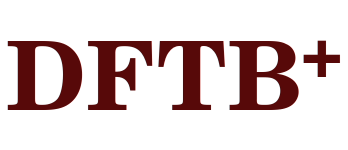DFTB+ simulation package
DFTB+ is a fast and efficient versatile quantum mechanical simulation software package. Using DFTB+ you can carry out quantum mechanical atomistic simulations similar to density functional theory but in an approximate way, typically gaining around two orders of magnitude in speed. (See About DFTB+ for further details.)
You can use DFTB+ either as a standalone application or embed it into your own academic or commercial simulation package as a library.
DFTB+ is free software licensed under the GNU Lesser General Public License.
DFTB+ 25.1 has been released.
